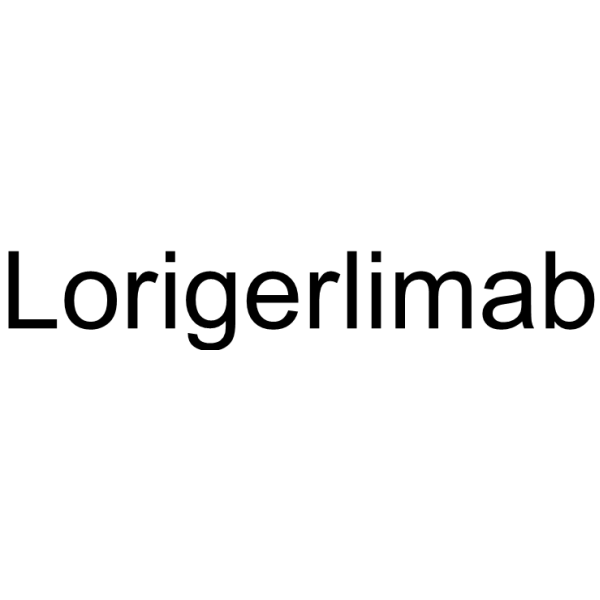| Description |
Lorigerlimab (MGD019) is a bispecific IgG4 dual-affinity re-targeting antibody (DART). Lorigerlimab can block PD-1 and CTLA-4, and improves T-cell responses. Lorigerlimab can be used for research of metastatic castration-resistant prostate cancer (mCRPC)[1][2][3].
|
| Related Catalog |
|
| In Vitro |
Lorigerlimab (0.01 nM-1 nM) 与 Jurkat/PD-1 细胞结合并阻断 PD-L1 与细胞结合[2]。 Lorigerlimab 可以独立地参与和阻断表达一种或另一种检查点分子的细胞上的 PD-1 和 CTLA-4 (EC50: PD-1+ 细胞为 0.42 nM,CTLA-4+ 细胞为 4.8 nM, PD-1 和 CTLA-4+ 细胞为 0.013 nM)[2]。
|
| In Vivo |
Lorigerlimab (75 mg/kg,静脉注射) 在食蟹猴中显示出 CTLA-4 阻断作用[2]。 Lorigerlimab (10-100 mg/kg,静脉注射,4 周) 在食蟹猴中耐受性良好,半衰期约为 7 天[2]。 Animal Model: Cynomolgus monkeys [4] Dosage: 75 mg/kg Administration: i.v. Result: Increased the Ki67+ T cell fraction, and showed T cell expansion in the spleen.
|
| References |
[1]. Jason J. Luke, et al. Lorigerlimab, a bispecific PD-1×CTLA-4 DART molecule in patients (pts) with metastatic castration-resistant prostate cancer (mCRPC): A phase 1 expansion (exp) cohort. Journal of Clinical Oncology 2023 41:6_suppl, 155-155. [2]. Berezhnoy A, et al. Development and Preliminary Clinical Activity of PD-1-Guided CTLA-4 Blocking Bispecific DART Molecule. Cell Rep Med. 2020 Dec 22;1(9):100163. [3]. Trojaniello C, Luke JJ, Ascierto PA. Therapeutic Advancements Across Clinical Stages in Melanoma, With a Focus on Targeted Immunotherapy. Front Oncol. 2021 Jun 10;11:670726.
|
